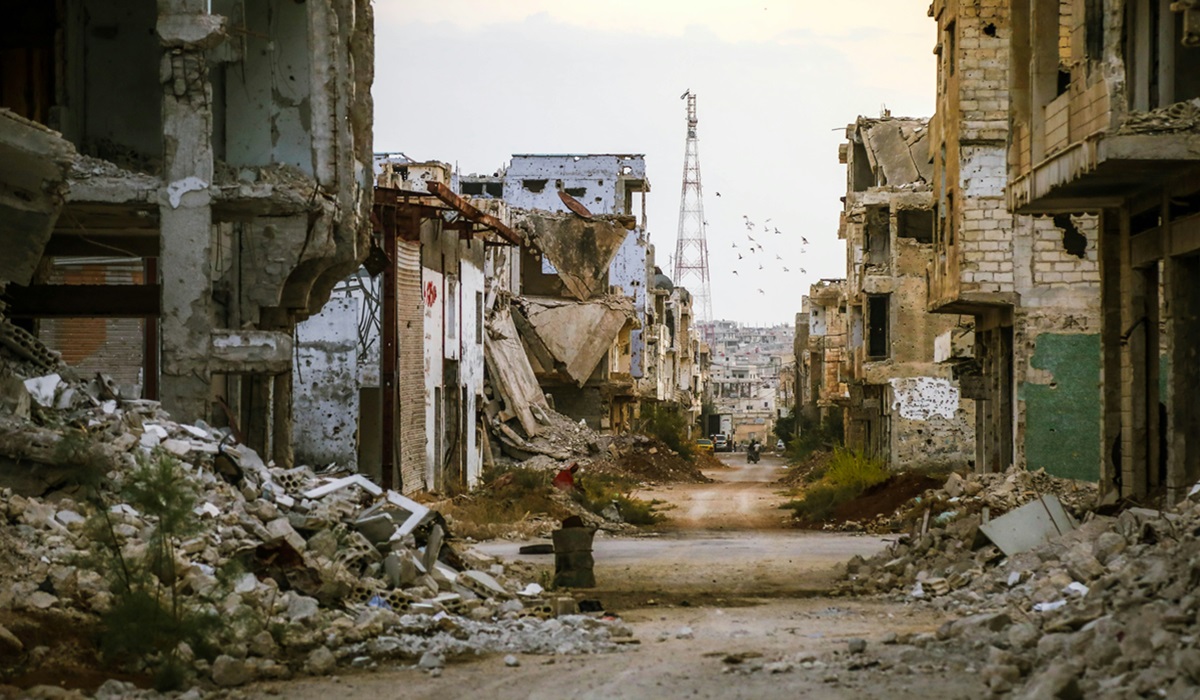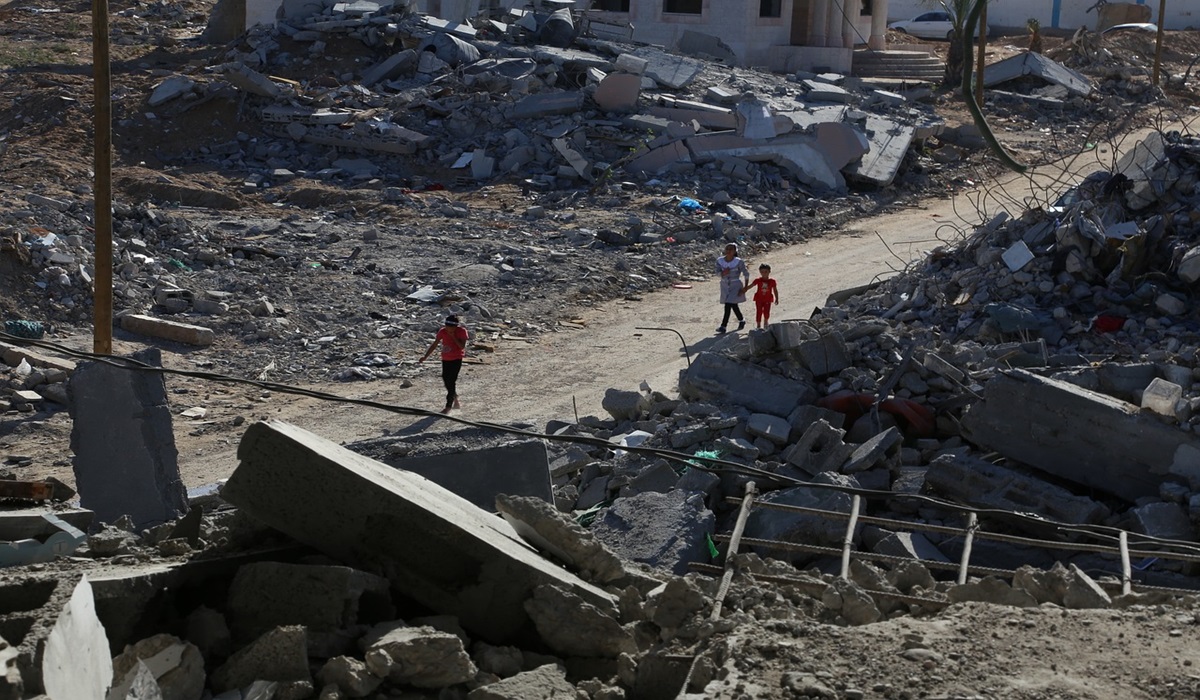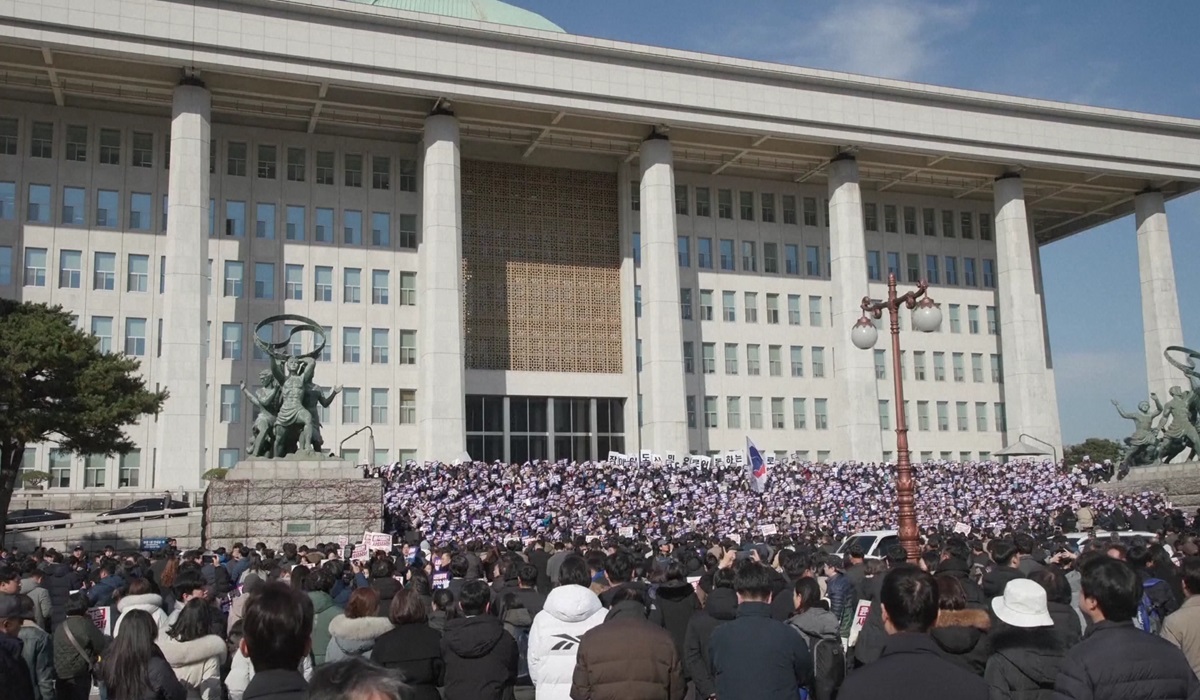Macron Breaks G7 Ranks: Calls for End to Arms Supplies to Israel Amid Gaza Conflict
- TDS News
- Breaking News
- October 5, 2024

French President Emmanuel Macron has made a bold call for an immediate cessation of arms supplies to Israel, urging that the focus should shift towards finding a political solution to the ongoing conflict. “I think that today, the priority is that we return to a political solution, that we stop delivering weapons to fight in Gaza,” Macron declared, signaling a significant pivot in France’s foreign policy towards the conflict. His statement comes at a time when millions have taken to the streets of capital cities across Europe, including France, to protest Israel’s military actions in Gaza and Lebanon. Macron’s decision makes France the first G7 nation to explicitly demand a halt to arms supplies to Israel, marking a sharp contrast with the more muted stances of other Western powers.
Canada and the United Kingdom, while also curbing arms sales to Israel, have done so reluctantly and in a limited capacity. Their actions have been described as symbolic at best, largely seen as measures to appease voters without making substantial changes to their defense policies. Despite the public outcry and mounting international pressure, these nations have not yet fully embraced the robust stance that Macron has taken. Many observers argue that their hesitation is driven by concerns over backlash from the United States, Israel’s most powerful ally and a country that exerts significant influence over its G7 counterparts.
Macron’s declaration could have far-reaching implications for the ongoing war in Gaza and the broader regional conflict, particularly with Hezbollah’s involvement from Lebanon. By advocating for an arms embargo, France is positioning itself as a potential leader in the diplomatic effort to de-escalate the violence. However, the war is far from a purely bilateral issue between Israel and Palestine. It has become a complex web of regional alliances and external powers, with many countries, particularly in the West, entangled in supplying military support.
The question now arises: why have other G7 nations, aside from France, refrained from making similarly forceful statements? The answer lies largely in geopolitical dynamics, particularly the deep-seated influence the United States wields over the group. The U.S. has long been a staunch supporter of Israel, providing billions of dollars in military aid annually. This support has come under scrutiny, particularly as the conflict escalates and images of civilian casualties in Gaza draw global condemnation. But Washington’s unyielding stance has made it difficult for other G7 members to take decisive action, lest they risk straining their relations with the U.S.
The reluctance of Canada and the UK to go beyond symbolic gestures reflects a broader fear of alienating Washington. These nations are balancing domestic pressure to act with the geopolitical reality of needing to maintain a strong alliance with the U.S. Macron, on the other hand, appears to be testing the limits of this balance, potentially signaling a shift in European diplomacy that challenges U.S. hegemony on this issue. His move may embolden other European countries to adopt similar policies, especially as protests continue to swell across the continent.
For Gaza and Lebanon, Macron’s call for an arms embargo could alter the trajectory of the conflict. While the halt in arms deliveries may not immediately end the violence, it introduces a new dimension to the diplomatic process. With France leading the charge, the focus may shift toward a multilateral approach to negotiating a ceasefire and eventual peace talks. It could also force Israel to reconsider its military strategy, knowing that its access to Western weapons is no longer guaranteed.
On a global scale, France’s stance may strain G7 cohesion, particularly if Macron continues to distance himself from the more cautious positions of his counterparts. This could lead to tensions within the group, as other nations grapple with how to respond to the escalating conflict without jeopardizing their strategic alliances, particularly with the U.S.
Ultimately, Macron’s decision reflects a growing impatience with the status quo. As public outrage mounts and the humanitarian toll of the war in Gaza and Lebanon becomes more apparent, leaders in Europe are being pushed to rethink their policies. Whether France’s call to halt arms sales to Israel will spur further action from other G7 nations remains uncertain, but the move signals a significant shift in the discourse surrounding the conflict.








